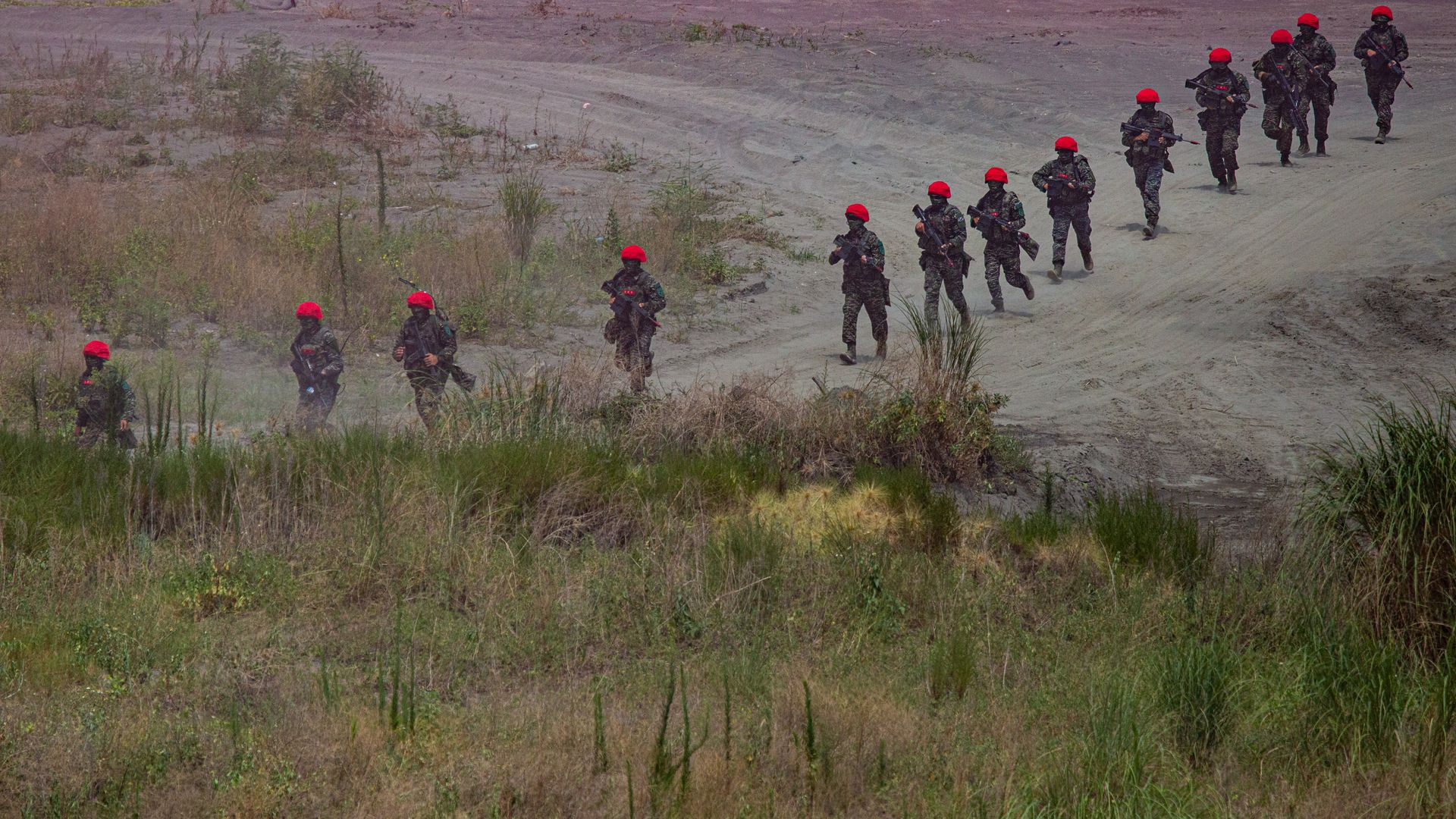Bethany Allen-Ebrahimian Dave Lawler
TAIPEI, Taiwan — The timeline for a potential Chinese attempt to take Taiwan by force seems to be getting shorter.
Driving the news: Chinese President Xi Jinping warned President Biden not to "play with fire" over Taiwan on Thursday, according to the Chinese readout of a call between the two leaders.
That contentious exchange comes with Beijing threatening "serious consequences" if House Speaker Nancy Pelosi follows through on a planned visit to the self-governing island.
Pelosi's plans and the bellicose response from Beijing have renewed speculation that Taiwan could become a military flashpoint sooner rather than later.
The Pentagon has briefed Pelosi about its security concerns around the trip, and Biden has said publicly that the U.S. military thinks it's "not a good idea right now."
While all that was happening, the Taiwanese military was conducting a five-day exercise to simulate a Chinese invasion, part of a regular schedule of defense drills conducted each year.
The big picture: The Chinese government has repeatedly vowed to take control of the self-governing island, by force if necessary, and it reacts furiously to any gesture that seems to treat Taiwan as an independent state.
State of play: U.S. and Taiwanese officials have in the past floated various timelines for an invasion, often setting the horizon at 2025 or 2030.But U.S. officials now believe China may make a strong move against Taiwan within the next 18 months, according to a recent New York Times report, though that estimate is not based on specific knowledge of Beijing's plans.
The U.S. and Taiwan need to take these signals as a call to strengthen military cooperation and joint training, a Taiwanese government official in Taipei told Axios. "Whether it's 18 months or seven years from now, we need to start this process now," the official said, "before it's too late."
Yes, but: Neither Washington nor Taipei expects an imminent attack.Taiwan's top intelligence official, Chen Ming-tong, said in March that it was "highly unlikely" China would move this year.
Taiwanese Foreign Minister Joseph Wu said last month that strength of the western response to the Russian invasion serves as a "powerful deterrent" to a potential Chinese assault on Taiwan.
CIA Director Bill Burns said last week that no attack is expected immediately but the risks "become higher, it seems to us, the further into this decade that you get."
Meanwhile, China's military posture in the region has become much more aggressive, Ely Ratner, assistant secretary of defense for Indo-Pacific affairs, said on Tuesday.
President Biden has also upped the ante by saying three separate times that the U.S. has committed to defend Taiwan.
That's despite the fact that the White House insists there has been no change to the "strategic ambiguity" policy, under which the U.S. takes no explicit position on that issue, or to the "One China Policy," under which the U.S. neither rejects nor accepts Beijing's claims over Taiwan.
Concerns over a potential invasion are also growing in Taiwan, which has taken inspiration from Ukraine's effective defense against Russia.Officials are considering expanding the country's mandatory military service, the Ministry of Defense issued its first civil defense handbook, and civilians are signing up for civil defense training courses.
U.S. officials, meanwhile, have been urging Taiwan to invest more in the kinds of asymmetric warfare capabilities, such as truck-mounted anti-aircraft missiles, that Ukraine has used against Russia.
But it's not just Taiwan that's learning from the Russian invasion."I suspect the lesson that the Chinese leadership and military are drawing is that you've got to amass overwhelming force," Burns said.

No comments:
Post a Comment